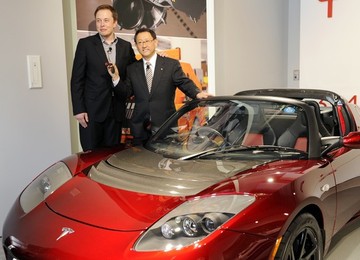After years of a weak American auto market, 2012 sales boomed to a five year high of 14.5 million vehicles, a 13% increase over 2011, improving profits across the industry. Globally, Toyota regained its throne as the largest automaker measured by units sold.
Growth in sales often lead to changes in the competitive landscape—market share, units sold, and stock price are used to judge the success of a company. But what have we really learned from these various analyses that treat auto companies as if they are sports teams vying for some sort of championship?
What I have learned is that most of the analyses are as superficial as counting wins and losses in a sport season. The focus is only on short-term, measurable outcomes that are simple for the public to understand.
These analyses have little to do with the underlying capability of the firm, its strengths and weaknesses, its overall financial health, and where it will be in the long-term, e.g., at least a decade. They also make assumptions about what success means for a firm and cast it in terms of winning versus competitors on a few simple measures, like units sold in the case of auto’s.
One of the more intelligent public announcements I read recently was by GM CEO Dan Akerson, who said they expected modest market share gains in 2013, and “Our goal is by the 2015 to ‘16 time frame to be single-A investment grade”… To do that we have to focus on “product, product, product.” Now a two-year vision is not long-term, but Akerson is thinking in the right direction about product and customers.
During the infamous recall crisis, Toyota was accused of putting growth and profits before safety, and Akio Toyoda agreed that satisfying customers should always come first. Then Volkswagen came out and boldly stated its goal was to be number one in units sold, and was lauded for its vision and aggression. At the end of the day we still want simple measures to pick winners and losers.
(Read why the Toyota recall crisis doesn’t hurt Toyota’s quality program)
What Akio Toyoda said was sincere. The Toyota Way principles always start with the customer. Then comes the dealers, and then the team members, and then other partners, and the goal is “long-term mutual prosperity.” If that is the goal then you must look more deeply inside the company to judge its health.

Toyota CEO Akio Toyoda and Tesla Motors CEO Elon Musk (AFP/Getty Images)
A recent article was headlined Toyota Knows the Future.
The journalist Jonathan Wagner lauds Toyota for investing in Tesla before anyone believed the high-end electric car company had a chance for success. He noted that while Toyota has primarily focused on hybrids, they have invested heavily in electric cars and are ready when the infrastructure is ready and the price of batteries vs power has advanced. What he may not know is the degree to which Toyota has invested in all possible alternative fuels, including hydrogen fuel cells, and has invested in its own battery engineering and manufacturing capability, with Panasonic as a minority partner. This allows for relentless kaizen of battery product and process technology which Toyota does so well. He goes on to talk about how the stock price to book value of Toyota has stayed at about 1 through downs and the recent huge increase in Toyota stock indicating it is relatively low risk and a good long term buy. Few analysts pay attention to data trends and look at simplistic measures like P/E based on current earnings.
Imagine if we evaluated companies based on their investment in people, consistency of leadership and vision, the net worth of the company (assets – liabilities), investments in R&D, and the thoughtfulness of long-term strategies. Imagine if a financially healthy company that is growing steadily, taking care of its people, and positively impacting society was evaluated as successful whether or not it sold more units then a competitor. Just imagine….
Dr. Jeffrey Liker is professor of industrial and operations engineering at the University of Michigan and author of The Toyota Way. He leads Liker Lean Advisors, LLC and his latest book (with Gary Convis) is The Toyota Way to Lean Leadership
